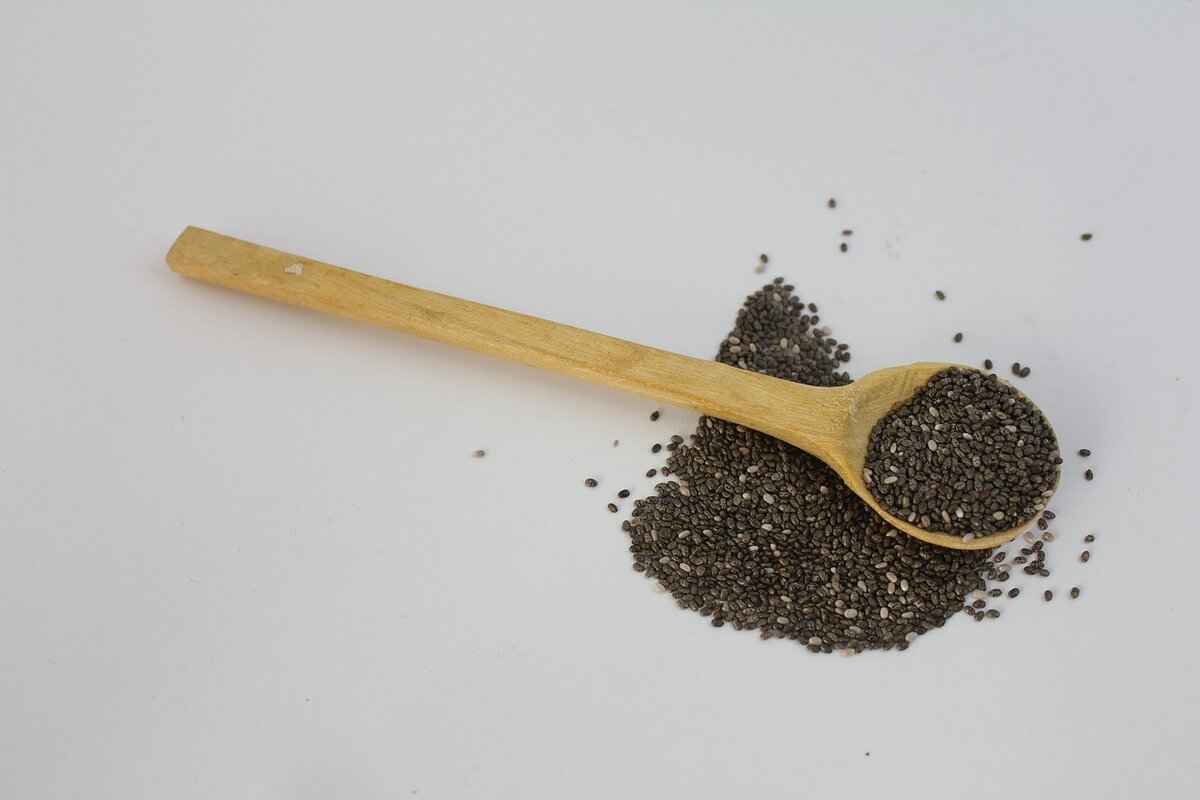Chia seed oil has gained significant attention in recent years due to its impressive health benefits and versatile uses. This nutrient-dense oil is derived from chia seeds, which are known for their rich content of omega-3 fatty acids, antioxidants, and essential nutrients. In this article, we will explore the numerous benefits and uses of chia seed oil, while also comparing it to other popular oils in the market.
Chia seed oil is packed with essential nutrients that contribute to overall health. One of its most notable benefits is its high concentration of omega-3 fatty acids, which are crucial for heart health and cognitive function. Additionally, chia seed oil contains powerful antioxidants that help combat oxidative stress and inflammation in the body.
Integrating chia seed oil into your meals can be both easy and delicious. Here are some practical ways to include it in your daily diet:
- Drizzling: Add chia seed oil to salads or steamed vegetables for a flavorful twist.
- Baking: Substitute chia seed oil for other oils in baking recipes to boost nutritional value.
- Smoothies: Blend chia seed oil into your favorite smoothies for a nutrient-packed beverage.
Understanding how chia seed oil stacks up against other popular oils is crucial for making informed dietary choices. Here’s a comparative analysis:
Both chia seed oil and flaxseed oil are rich in omega-3s, but they differ in their nutritional profiles. Chia seed oil has a higher antioxidant content, while flaxseed oil is often praised for its lignan content, which may have additional health benefits.
Olive oil is a staple in many diets, particularly in Mediterranean cuisine. While olive oil is renowned for its heart-healthy monounsaturated fats, chia seed oil offers a unique combination of omega-3s and antioxidants, making it a valuable addition to any diet.
Chia seed oil isn’t just for consumption; it also offers several skincare benefits. Its high fatty acid content makes it an excellent moisturizer. It can help improve skin hydration and elasticity, making it a popular choice in skincare routines.
Due to its rich composition, chia seed oil can effectively lock in moisture, making it ideal for dry skin. Regular application can lead to a smoother, more radiant complexion.
Chia seed oil can also benefit hair health. It nourishes the scalp and adds shine to hair, making it an excellent natural treatment for dry or damaged hair.
While chia seed oil is generally safe, it’s important to be aware of potential side effects. Some individuals may experience allergies to chia seeds, leading to symptoms such as itching or swelling.
Signs of an allergic reaction can include skin rashes or gastrointestinal discomfort. It’s advisable to consult with a healthcare provider if you suspect an allergy.
Chia seed oil may interact with certain medications, particularly blood thinners. Individuals on such medications should consult their healthcare provider before adding chia seed oil to their regimen.
Finding high-quality chia seed oil can be challenging. Look for products that are cold-pressed and organic to ensure maximum nutrient retention.
Organic chia seed oil is often free from pesticides and harmful chemicals, making it a healthier choice for both consumption and skincare.
When selecting chia seed oil, check for purity, sourcing, and production methods on the label. This will help ensure you are purchasing a quality product.

What Are the Key Benefits of Chia Seed Oil?
Chia seed oil is derived from the seeds of the Salvia hispanica plant, native to Central and South America. This oil is increasingly recognized for its impressive nutrient profile and numerous health benefits. In this section, we will explore the key advantages of incorporating chia seed oil into your diet, focusing on its rich content of omega-3 fatty acids and potent antioxidant properties.
One of the most notable benefits of chia seed oil is its high concentration of omega-3 fatty acids. These essential fats are crucial for maintaining heart health, as they help to reduce inflammation and lower cholesterol levels. Research suggests that consuming omega-3 fatty acids can decrease the risk of heart disease and improve overall cardiovascular function. In fact, chia seed oil contains a higher amount of omega-3s compared to many other oils, making it an excellent choice for those looking to boost their intake of these vital nutrients.
In addition to omega-3s, chia seed oil is rich in antioxidants, which play a critical role in protecting the body from oxidative stress. Antioxidants help combat free radicals, unstable molecules that can cause cellular damage and contribute to chronic diseases, including cancer and aging. The presence of antioxidants in chia seed oil can enhance your body’s ability to fight off these harmful effects, promoting overall health and longevity.
Another significant benefit of chia seed oil is its ability to support digestive health. The oil contains soluble fiber, which aids in digestion and helps maintain a healthy gut. By promoting regular bowel movements and preventing constipation, chia seed oil can contribute to a well-functioning digestive system. Additionally, the fiber content can help regulate blood sugar levels, making it a beneficial addition for individuals managing diabetes.
Moreover, chia seed oil has been linked to improved skin health. Its moisturizing properties can help hydrate the skin, making it an excellent option for those with dry or sensitive skin. The fatty acids in chia seed oil can also promote skin elasticity and reduce the appearance of fine lines and wrinkles. By incorporating this oil into your skincare routine, you can achieve a radiant and youthful complexion.
Furthermore, chia seed oil is a versatile ingredient that can easily be added to various dishes. Whether you drizzle it over salads, blend it into smoothies, or use it as a cooking oil, its mild flavor makes it an excellent complement to numerous recipes. This adaptability allows you to enjoy its benefits without altering the taste of your favorite meals.
In summary, chia seed oil stands out as a nutrient-dense oil that offers a plethora of health benefits. From its high omega-3 fatty acid content and antioxidant properties to its positive effects on digestion and skin health, incorporating chia seed oil into your diet can significantly enhance your overall well-being. With its versatility in the kitchen, it’s easier than ever to reap the rewards of this superfood oil.

How to Incorporate Chia Seed Oil into Your Diet?
Chia seed oil has gained popularity due to its numerous health benefits, making it a fantastic addition to any diet. Rich in omega-3 fatty acids, antioxidants, and other essential nutrients, this oil can be easily incorporated into your meals. Here are some practical and delicious ways to add chia seed oil to your daily diet for optimal health benefits.
Chia seed oil is versatile and can enhance the flavor profile of various dishes. Unlike some oils, it has a mild taste that won’t overpower your meals. Here are some ways to use it:
- Drizzling Over Dishes: Use chia seed oil as a finishing oil for grilled vegetables or roasted meats to add a nutty flavor.
- In Baking: Substitute chia seed oil for other oils in baking recipes for muffins, cakes, or breads, enhancing their nutritional value.
- In Soups and Stews: Add a tablespoon of chia seed oil to your favorite soup or stew after cooking to retain its nutrients.
Creating healthy salad dressings with chia seed oil is a great way to boost nutrition. Here are a few simple recipes:
- Basic Vinaigrette: Combine 3 tablespoons of chia seed oil, 1 tablespoon of vinegar, and a pinch of salt. Shake well and drizzle over your salad.
- Herbed Dressing: Mix 2 tablespoons of chia seed oil, 1 tablespoon of lemon juice, minced garlic, and your choice of herbs for a fresh dressing.
Adding chia seed oil to smoothies can significantly enhance their nutritional profile. Here’s how to blend it seamlessly into your favorite recipes:
- Green Smoothie: Blend spinach, banana, yogurt, and a tablespoon of chia seed oil for a nutrient-packed drink.
- Berry Blast: Combine mixed berries, almond milk, and chia seed oil for a delicious and healthy smoothie.
If you prefer a more straightforward approach, chia seed oil capsules are available. This method provides the same benefits without the need to alter your meals. However, it’s essential to consult a healthcare provider to determine the right dosage for your needs.
Chia seed oil can also enhance your snacks. Consider these ideas:
- Popcorn Topping: Drizzle chia seed oil over freshly popped popcorn for a healthy twist.
- Nut Butters: Mix chia seed oil into your favorite nut butter for added omega-3s and a smoother texture.
Incorporating chia seed oil into your diet can be both easy and enjoyable. Whether you use it in cooking, baking, or as a supplement, the health benefits are undeniable. With its rich nutrient profile, chia seed oil can help improve heart health, support digestion, and enhance overall well-being.
Using Chia Seed Oil in Cooking
Chia seed oil is not just a health supplement; it is a versatile ingredient that can transform your culinary creations. With its light flavor and rich nutritional profile, chia seed oil can enhance the taste and health benefits of various dishes. This section will delve into practical cooking techniques and delicious recipes that effectively utilize chia seed oil.
Why Choose Chia Seed Oil for Cooking?
Chia seed oil is renowned for its high content of omega-3 fatty acids, which are essential for heart health and overall wellness. Unlike many cooking oils, it has a mild flavor, making it an excellent choice for a range of dishes without overpowering other ingredients. Additionally, it is rich in antioxidants, which can help combat oxidative stress in the body.
Cooking Techniques to Use with Chia Seed Oil
- Drizzling: Use chia seed oil as a finishing oil. Drizzle it over salads, roasted vegetables, or pasta dishes to add a nutritional boost and a touch of flavor.
- Sautéing: While chia seed oil has a lower smoke point than some oils, it can still be used for light sautéing. Keep the heat moderate to preserve its nutritional benefits.
- Marinades: Incorporate chia seed oil into marinades for meats, fish, or tofu. Its flavor complements herbs and spices, enhancing the overall taste.
Delicious Recipes Featuring Chia Seed Oil
Here are a few simple recipes that highlight the unique qualities of chia seed oil:
1. Chia Seed Oil Vinaigrette - 1/4 cup chia seed oil - 2 tablespoons apple cider vinegar - 1 teaspoon Dijon mustard - Salt and pepper to taste Whisk together all ingredients and serve over your favorite salad.2. Chia Seed Oil Roasted Vegetables - 2 cups mixed vegetables (carrots, bell peppers, zucchini) - 2 tablespoons chia seed oil - 1 teaspoon garlic powder - Salt and pepper to taste Toss vegetables with oil and seasonings, then roast at 400°F for 25-30 minutes.3. Chia Seed Oil Smoothie - 1 banana - 1 cup spinach - 1 tablespoon chia seed oil - 1 cup almond milk Blend all ingredients until smooth for a nutrient-packed drink.
Pairing Chia Seed Oil with Other Ingredients
Chia seed oil pairs well with a variety of foods. Consider combining it with citrus juices, honey, or mustard for dressings, or use it in baking recipes where a light oil is required. The subtle taste allows it to work harmoniously with both sweet and savory dishes.
Storage Tips for Chia Seed Oil
To maintain the freshness and nutritional benefits of chia seed oil, store it in a cool, dark place, away from direct sunlight. Always check the expiration date, as oils can go rancid over time.
Incorporating chia seed oil into your cooking not only enhances flavors but also adds a wealth of health benefits to your meals. With its versatility and rich nutrient profile, it’s a fantastic addition to any kitchen.
Salad Dressings with Chia Seed Oil
offer a delightful way to enhance your meals while boosting their nutritional value. Chia seed oil, derived from the seeds of the chia plant, is rich in omega-3 fatty acids, antioxidants, and essential nutrients, making it an excellent choice for health-conscious individuals. In this section, we will explore various recipes for creating healthy salad dressings using chia seed oil, ensuring that you can easily incorporate this superfood into your diet.
Why should you consider using chia seed oil in your salad dressings? First, its mild flavor complements a variety of ingredients without overpowering them. Additionally, the oil is known for its ability to enhance the absorption of fat-soluble vitamins from the vegetables in your salad. Here are some simple yet delicious recipes to try at home:
- Classic Chia Seed Oil Vinaigrette
- Ingredients:
- 1/4 cup chia seed oil
- 2 tablespoons apple cider vinegar
- 1 tablespoon Dijon mustard
- 1 teaspoon honey or maple syrup
- Salt and pepper to taste
- Instructions:
- In a bowl, whisk together all the ingredients until well combined.
- Adjust seasoning as needed and serve over your favorite salad.
- Herbed Chia Seed Oil Dressing
- Ingredients:
- 1/4 cup chia seed oil
- 1/4 cup fresh lemon juice
- 1 tablespoon chopped fresh herbs (like basil or parsley)
- 1 clove garlic, minced
- Salt and pepper to taste
- Instructions:
- Combine all ingredients in a jar with a tight-fitting lid.
- Shake well until mixed. Let it sit for 10 minutes to allow the flavors to meld.
- Spicy Chia Seed Oil Dressing
- Ingredients:
- 1/4 cup chia seed oil
- 2 tablespoons lime juice
- 1 teaspoon chili flakes or hot sauce
- 1 tablespoon honey or agave syrup
- Salt to taste
- Instructions:
- Mix all ingredients in a bowl and whisk until well combined.
- Drizzle over your salad for a zesty kick!
Using chia seed oil in your salad dressings not only boosts flavor but also enhances the nutritional profile of your meals. These recipes are easy to prepare and can be stored in the refrigerator for up to a week. Feel free to experiment with different ingredients, such as nuts, seeds, or fruits, to create your own unique dressings. Enjoy the health benefits of chia seed oil while savoring delicious salads!
Chia Seed Oil in Smoothies
is a fantastic way to elevate your daily nutrition. This nutrient-dense oil is derived from the seeds of the chia plant, known for its impressive health benefits, including a rich source of omega-3 fatty acids, antioxidants, and fiber. Incorporating chia seed oil into your smoothies can not only enhance their nutritional profile but also improve their taste and texture.
So, how can you seamlessly blend chia seed oil into your favorite smoothie recipes? Here are some practical tips and delicious ideas to get you started:
- Start with a Base: Choose your favorite fruits and vegetables as a base. Common choices include bananas, spinach, and berries. These provide natural sweetness and a vibrant color.
- Measure the Oil: A good starting point is to add 1 tablespoon of chia seed oil per smoothie. This amount is sufficient to reap the benefits without overpowering the flavor.
- Blend Well: To ensure the oil is fully incorporated, add it along with your liquid ingredients, such as almond milk, coconut water, or yogurt. Blend on high until smooth.
- Experiment with Flavors: Chia seed oil has a mild, nutty flavor that pairs well with various ingredients. Try adding it to tropical smoothies with pineapple and mango, or mix it into a green smoothie with kale and avocado for added creaminess.
- Boost with Superfoods: Enhance your smoothie further by adding other superfoods like spinach, spirulina, or protein powder. These ingredients work synergistically with chia seed oil to provide a nutrient-packed drink.
For a quick recipe, try this Berry Chia Smoothie:
Ingredients:- 1 cup mixed berries (fresh or frozen)- 1 banana- 1 cup almond milk- 1 tablespoon chia seed oil- 1 tablespoon honey (optional)Instructions:1. Combine all ingredients in a blender.2. Blend until smooth and creamy.3. Pour into a glass and enjoy!
By adding chia seed oil to your smoothies, you not only enhance their nutritional value but also create a delicious and satisfying drink. The oil’s high omega-3 content supports heart health, while its antioxidants help combat oxidative stress in the body. Plus, the fiber content aids digestion, making your smoothie a well-rounded meal option.
In summary, incorporating chia seed oil into your smoothie routine is an easy and effective way to boost your health. With its mild flavor and numerous health benefits, it’s a versatile ingredient that can be adapted to various recipes. Don’t hesitate to experiment with different combinations to find your perfect blend!
Chia Seed Oil as a Supplement
Chia seed oil has gained popularity as a dietary supplement, particularly in the form of capsules. For those who find it challenging to incorporate liquid oils into their diet, chia seed oil capsules offer a convenient alternative. This section will explore the pros and cons of using chia seed oil in capsule form, helping you make an informed decision on whether it’s the right choice for your health needs.
- Convenience: Capsules are easy to take on the go, making them an ideal option for busy individuals.
- Accurate Dosage: Each capsule contains a standardized amount of chia seed oil, ensuring you receive a consistent dosage.
- No Taste: For those who dislike the flavor of chia seed oil, capsules provide a tasteless alternative.
- Long Shelf Life: Capsules often have a longer shelf life compared to liquid oils, making them easier to store.
- Cost: Chia seed oil capsules can be more expensive than purchasing the oil in liquid form.
- Absorption Issues: Some studies suggest that the body may absorb nutrients from liquid oils more effectively than from capsules.
- Limited Nutrient Profile: While capsules provide omega-3 fatty acids, they may lack some of the other beneficial compounds found in whole chia seeds.
When selecting chia seed oil capsules, it’s essential to consider quality. Look for products that are:
- Certified Organic: Organic products are free from pesticides and harmful chemicals.
- Cold-Pressed: Cold-pressed oils retain more nutrients and flavor.
- Third-Party Tested: This ensures the product has been tested for purity and potency.
Chia seed oil capsules may be particularly beneficial for:
- Vegetarians and Vegans: Those looking for plant-based sources of omega-3 fatty acids.
- Individuals with Digestive Issues: People who have difficulty digesting oils may find capsules easier to tolerate.
- Busy Lifestyles: Anyone seeking a quick and easy way to supplement their diet.
In conclusion, while chia seed oil capsules offer several advantages, it’s crucial to weigh these against potential drawbacks. By considering your personal health goals and lifestyle, you can determine if chia seed oil capsules are the right addition to your daily routine.

How Does Chia Seed Oil Compare to Other Oils?
When it comes to healthy cooking oils, chia seed oil has gained significant attention for its impressive nutritional profile. However, understanding how it stacks up against other popular oils, such as flaxseed oil and olive oil, is crucial for making informed dietary choices. This section delves into a comparative analysis of these oils, highlighting their unique benefits and uses.
Chia Seed Oil vs. Flaxseed Oil: A Nutritional Showdown
Both chia seed oil and flaxseed oil are renowned for their high content of omega-3 fatty acids, which are essential for heart health. However, they differ in their composition:
- Omega-3 Content: Chia seed oil contains alpha-linolenic acid (ALA), while flaxseed oil has a higher concentration of ALA, making it slightly more beneficial for omega-3 intake.
- Antioxidants: Chia seed oil is rich in antioxidants, which help combat oxidative stress. Flaxseed oil, while nutritious, lacks the same level of antioxidant properties.
- Cooking Versatility: Chia seed oil has a higher smoke point than flaxseed oil, making it more suitable for cooking at higher temperatures.
In summary, while both oils are beneficial, chia seed oil may be the better choice for those seeking a versatile cooking oil with added antioxidant benefits.
Chia Seed Oil vs. Olive Oil: A Culinary Comparison
Olive oil is a staple in Mediterranean diets, celebrated for its heart-healthy monounsaturated fats. When comparing it to chia seed oil, consider the following:
- Fat Composition: Olive oil is primarily composed of monounsaturated fats, which are known to lower bad cholesterol levels. Chia seed oil, on the other hand, is rich in polyunsaturated fats, particularly omega-3s.
- Flavor Profile: Olive oil has a distinct flavor that enhances many dishes, while chia seed oil has a more neutral taste, making it an excellent addition to smoothies and salad dressings.
- Health Benefits: Both oils offer health benefits, but olive oil has been extensively studied for its role in reducing inflammation and promoting heart health.
Ultimately, both chia seed oil and olive oil have their unique advantages, and incorporating both into your diet can provide a broader spectrum of health benefits.
Choosing the Right Oil for Your Needs
When selecting between chia seed oil, flaxseed oil, and olive oil, consider your personal health goals and cooking preferences. If you’re looking for a versatile oil with high antioxidant content, chia seed oil is an excellent choice. For those focused on heart health, olive oil remains a top contender. Meanwhile, flaxseed oil is perfect for boosting omega-3 intake without the need for cooking.
In conclusion, understanding the differences between these oils can help you make informed choices that align with your health objectives. Each oil brings its unique benefits to the table, allowing for a diverse and nutritious diet.
Chia Seed Oil vs. Flaxseed Oil
When it comes to omega-3 fatty acids, both chia seed oil and flaxseed oil are renowned for their health benefits. However, they are not identical in their nutritional profiles and uses. This section will explore the differences and similarities between these two oils, helping you make an informed choice for your dietary needs.
- Omega-3 Content: Both oils are excellent sources of alpha-linolenic acid (ALA), a type of omega-3 fatty acid. However, chia seed oil contains a higher concentration of ALA compared to flaxseed oil. This makes chia seed oil a more potent option for those looking to boost their omega-3 intake.
- Antioxidant Properties: Chia seed oil is rich in antioxidants, which help combat oxidative stress in the body. Flaxseed oil also contains antioxidants, but chia seed oil has a more diverse profile, offering additional health benefits.
- Digestibility: Chia seed oil is often easier to digest than flaxseed oil. This can be particularly beneficial for individuals with sensitive digestive systems.
- Versatility: Chia seed oil has a mild flavor, making it a versatile ingredient in various dishes. It can be used in salad dressings, smoothies, and even baking. Flaxseed oil, while nutritious, has a more distinct taste that may not appeal to everyone.
- Storage and Shelf Life: Chia seed oil has a longer shelf life compared to flaxseed oil. This is crucial for maintaining the oil’s quality and avoiding rancidity.
Health Benefits:
Both oils offer a range of health benefits:
- Heart Health: The omega-3s in both oils contribute to heart health by reducing inflammation and lowering cholesterol levels.
- Skin Benefits: Chia seed oil is known for its ability to hydrate and nourish the skin, while flaxseed oil can help improve skin elasticity.
- Weight Management: The healthy fats in both oils can help promote satiety, making them useful for weight management.
How to Use:
Incorporating these oils into your diet can be simple:
- Salad Dressings: Both oils can be used as a base for homemade salad dressings, adding nutrition and flavor.
- Smoothies: Add a tablespoon of either oil to your morning smoothie for an omega-3 boost.
- Supplements: For those who prefer not to use the oils in cooking, both chia seed and flaxseed oil are available in capsule form.
In summary, while both chia seed oil and flaxseed oil offer substantial health benefits, chia seed oil may have the edge in terms of omega-3 content, digestibility, and versatility. Understanding these differences can help you choose the right oil for your health and culinary needs.
Chia Seed Oil vs. Olive Oil
When it comes to healthy cooking oils, chia seed oil and olive oil are often at the forefront of discussions. Both oils offer unique health benefits and culinary uses, making them popular choices in many kitchens. In this section, we will explore how these two oils compare in terms of nutritional value, culinary applications, and health benefits.
Chia seed oil is derived from the seeds of the chia plant and is renowned for its high content of omega-3 fatty acids, particularly alpha-linolenic acid (ALA). This oil is also rich in antioxidants, which help combat oxidative stress in the body. On the other hand, olive oil, particularly extra virgin olive oil, is high in monounsaturated fats and contains a variety of beneficial compounds, including oleocanthal, which has anti-inflammatory properties.
- Chia Seed Oil: Supports heart health due to its omega-3 content, aids digestion, and may help in weight management.
- Olive Oil: Promotes cardiovascular health, reduces the risk of chronic diseases, and may enhance brain function.
Both oils can be incorporated into a variety of dishes, but their uses may differ:
- Chia Seed Oil: Best used in salad dressings, smoothies, or drizzled over cooked vegetables to preserve its nutritional properties.
- Olive Oil: Versatile in cooking, it can be used for sautéing, roasting, or as a base for marinades.
The flavor of chia seed oil is relatively mild, making it easy to blend into various recipes without overpowering other ingredients. In contrast, olive oil has a distinct, rich flavor that can enhance the taste of many dishes, particularly Mediterranean cuisine.
Both oils offer benefits for skin health:
- Chia Seed Oil: Known for its moisturizing properties, it can help hydrate and nourish the skin.
- Olive Oil: Often used in skincare for its antioxidant properties, it can help protect against skin aging.
While both oils are beneficial, it’s important to consider potential drawbacks:
- Chia Seed Oil: It may cause digestive issues in some individuals if consumed in large quantities.
- Olive Oil: Lower quality oils may contain additives or be diluted with cheaper oils, reducing their health benefits.
In conclusion, both chia seed oil and olive oil have unique health benefits and culinary uses. Choosing between them may depend on personal preferences, dietary needs, and specific health goals. Incorporating both oils into your diet can provide a well-rounded approach to healthy eating.

What Are the Skin Benefits of Chia Seed Oil?
Chia seed oil has gained popularity not just as a nutritional supplement but also as a valuable ingredient in skincare. Its rich composition offers numerous benefits that can significantly enhance skin health and hydration. This section delves into the various ways chia seed oil can improve your skin, making it an essential addition to your beauty regimen.
Chia seed oil is extracted from the seeds of the Salvia hispanica plant and is known for its high content of omega-3 fatty acids, antioxidants, and vitamins. These components work synergistically to promote healthy skin. Here are some key benefits:
- Deep Hydration: Chia seed oil is an excellent moisturizer. Its fatty acid profile allows it to penetrate the skin deeply, locking in moisture and preventing dryness. This is particularly beneficial for those with dry or sensitive skin.
- Anti-Aging Properties: The antioxidants present in chia seed oil help combat oxidative stress, which can lead to premature aging. Regular application can reduce the appearance of fine lines and wrinkles.
- Soothing Irritation: Chia seed oil has anti-inflammatory properties that can help soothe irritated skin. It is ideal for those suffering from conditions such as eczema or psoriasis.
- Improved Skin Elasticity: The oil’s rich nutrient profile supports collagen production, which is crucial for maintaining skin elasticity and firmness.
Incorporating chia seed oil into your skincare routine is simple and effective. Here are some practical ways to use it:
- Facial Serum: Apply a few drops of chia seed oil directly to your face after cleansing. This can serve as a nourishing serum that hydrates and revitalizes your skin.
- Moisturizer: Mix chia seed oil with your regular moisturizer to enhance its hydrating properties. This combination can provide an extra layer of moisture, especially in harsh weather conditions.
- Face Masks: Add chia seed oil to homemade face masks for added nourishment. It pairs well with ingredients like honey and yogurt, creating a soothing and hydrating mask.
- Body Oil: Use chia seed oil as a body oil after showering. Its lightweight texture absorbs quickly, leaving your skin feeling soft and smooth.
Many people wonder if chia seed oil is suitable for acne-prone skin. While it is an oil, its non-comedogenic nature means it won’t clog pores. In fact, its anti-inflammatory properties can help reduce redness and irritation associated with acne. Additionally, its ability to hydrate the skin can prevent the overproduction of sebum, which is often a contributing factor to acne.
Yes, chia seed oil is suitable for all skin types, including oily, dry, and combination skin. Its lightweight texture makes it particularly appealing for those with oily skin, as it won’t leave a greasy residue. However, as with any new product, it’s advisable to perform a patch test to ensure you don’t have any adverse reactions.
In conclusion, chia seed oil is a versatile and beneficial skincare ingredient that can enhance skin health and hydration. Its unique properties make it a valuable addition to any skincare routine, offering a natural solution for various skin concerns.
Moisturizing Properties of Chia Seed Oil
Chia seed oil has gained significant attention in the world of skincare, primarily due to its high fatty acid content. This oil is derived from the seeds of the Salvia hispanica plant and is renowned for its moisturizing properties. In this section, we will delve into how chia seed oil can be an effective addition to your skincare routine, enhancing hydration and promoting overall skin health.
The secret behind the moisturizing prowess of chia seed oil lies in its omega-3 fatty acids, particularly alpha-linolenic acid (ALA). These essential fatty acids are crucial for maintaining the skin’s natural barrier, which helps to retain moisture and protect against environmental stressors. As a result, chia seed oil is especially beneficial for individuals with dry, sensitive, or aging skin.
- Hydration: Chia seed oil is known for its ability to penetrate the skin deeply, providing intense hydration without leaving a greasy residue.
- Anti-Inflammatory Properties: The antioxidants present in chia seed oil can help reduce inflammation, making it suitable for those with conditions like eczema or psoriasis.
- Skin Repair: Regular use of chia seed oil can aid in repairing damaged skin, promoting a more even skin tone and texture.
- Anti-Aging Benefits: The oil’s rich nutrient profile helps to combat the visible signs of aging, such as fine lines and wrinkles.
Integrating chia seed oil into your skincare regimen can be simple and effective. Here are some practical tips:
- As a Moisturizer: Apply a few drops of chia seed oil directly to your face after cleansing. Its lightweight texture makes it suitable for all skin types.
- In DIY Masks: Combine chia seed oil with other natural ingredients like honey or yogurt to create nourishing face masks.
- In Your Body Lotion: Mix chia seed oil with your favorite body lotion for enhanced hydration.
One of the standout features of chia seed oil is its versatility. It is non-comedogenic, meaning it won’t clog pores, making it suitable for oily and acne-prone skin as well. However, as with any skincare product, it is advisable to conduct a patch test to ensure there are no adverse reactions.
Compared to other popular oils like coconut or olive oil, chia seed oil offers a higher concentration of omega-3 fatty acids. This unique fatty acid profile not only helps in moisturizing but also provides superior antioxidant protection. Additionally, chia seed oil is rich in vitamins and minerals, further enhancing its effectiveness in skincare.
In conclusion, chia seed oil is a powerhouse ingredient that can significantly improve skin hydration and health. Its rich fatty acid content, combined with its anti-inflammatory and antioxidant properties, makes it an excellent choice for anyone looking to enhance their skincare routine. By incorporating this oil into your daily regimen, you can enjoy the numerous benefits it has to offer, leading to a healthier, more radiant complexion.
Using Chia Seed Oil for Hair Care
Chia seed oil is not only a nutritional powerhouse but also a remarkable natural remedy for enhancing hair health. With its rich composition of omega-3 fatty acids, antioxidants, and vitamins, this oil can significantly improve the quality of your hair. Below, we will explore how to effectively use chia seed oil to promote shiny, healthy hair.
- Moisturizing Properties: Chia seed oil is renowned for its deep moisturizing capabilities. The oil penetrates the hair shaft, providing hydration that helps to combat dryness and frizz. This is particularly beneficial for those with curly or coarse hair types.
- Strengthening Hair: The essential fatty acids in chia seed oil play a crucial role in strengthening hair strands. Regular application can help reduce breakage and promote overall hair strength.
- Scalp Health: A healthy scalp is vital for hair growth. Chia seed oil can help soothe irritation and inflammation on the scalp, creating a conducive environment for hair follicles to thrive.
How to Use Chia Seed Oil for Hair Care
Incorporating chia seed oil into your hair care routine can be simple and effective. Here are some methods to consider:
- Chia Seed Oil Hair Mask: Mix chia seed oil with a carrier oil like coconut or olive oil. Apply the mixture to your hair, focusing on the ends. Leave it on for at least 30 minutes before washing it out with your regular shampoo. This mask nourishes and revitalizes your hair.
- Leave-In Conditioner: After washing your hair, apply a few drops of chia seed oil to damp hair as a leave-in conditioner. This will lock in moisture and add a natural shine.
- Scalp Treatment: For those experiencing dryness or dandruff, massage chia seed oil directly onto your scalp. This can help alleviate these issues while promoting healthy hair growth.
Benefits of Chia Seed Oil for Hair Health
Using chia seed oil not only enhances the appearance of your hair but also contributes to its long-term health. Some notable benefits include:
- Enhanced Shine: The oil provides a natural shine to your hair, making it look vibrant and healthy.
- Reduced Frizz: By moisturizing the hair, chia seed oil helps to tame frizz and flyaways, leading to smoother hair.
- Natural Ingredients: Unlike many commercial hair products that may contain harsh chemicals, chia seed oil is a natural alternative that aligns with a clean beauty philosophy.
In conclusion, chia seed oil is a versatile and effective option for those looking to improve their hair health. Its moisturizing, strengthening, and soothing properties make it a valuable addition to any hair care regimen. Whether used as a mask, leave-in conditioner, or scalp treatment, incorporating chia seed oil into your routine can lead to shiny, healthy hair.

Are There Any Side Effects of Chia Seed Oil?
Chia seed oil has gained popularity for its numerous health benefits, but like any supplement, it’s essential to be aware of its potential side effects. While most individuals can consume chia seed oil safely, understanding the possible adverse reactions is crucial for informed usage.
Chia seed oil is rich in omega-3 fatty acids and antioxidants, but it may not be suitable for everyone. Here are some potential side effects:
- Gastrointestinal Issues: Some individuals may experience digestive discomfort, including bloating, gas, or diarrhea, particularly when consuming large amounts.
- Allergic Reactions: Although rare, some people may have an allergy to chia seeds. Symptoms can include skin rashes, itching, or swelling. If you experience any of these symptoms after consuming chia seed oil, it is important to seek medical attention.
- Blood Thinning Effects: Chia seed oil may have blood-thinning properties due to its high omega-3 content. Individuals taking anticoagulant medications should consult their healthcare provider before using chia seed oil to avoid potential interactions.
While chia seed oil is generally safe, certain groups should be particularly cautious:
- Pregnant and Nursing Women: Due to limited research on the effects of chia seed oil during pregnancy and breastfeeding, it is advisable to consult a healthcare provider before use.
- Individuals with Allergies: Those with known allergies to seeds or nuts should approach chia seed oil with caution, as cross-reactivity may occur.
- People with Existing Health Conditions: If you have a bleeding disorder or are scheduled for surgery, consult your doctor before incorporating chia seed oil into your routine.
To minimize the risk of side effects, consider the following tips:
- Start with Small Amounts: Begin with a small dosage to assess how your body reacts before gradually increasing the amount.
- Consult a Healthcare Provider: If you are on medication or have underlying health issues, discussing the use of chia seed oil with a healthcare professional is wise.
- Monitor for Reactions: Keep track of any adverse reactions after consuming chia seed oil. If you notice any concerning symptoms, discontinue use and consult a doctor.
In conclusion, while chia seed oil offers numerous health benefits, it is essential to be aware of its potential side effects and take necessary precautions. By understanding how to use chia seed oil safely, you can enjoy its advantages without compromising your health.
Possible Allergic Reactions
Chia seeds are often praised for their numerous health benefits, but some individuals may experience allergies to these tiny seeds. It is essential to recognize the signs and symptoms of such allergies to ensure safety and well-being.
Allergic reactions to chia seeds can manifest in various ways. The symptoms may vary from mild to severe, and they can appear shortly after consuming the seeds or products containing them. Common signs to watch for include:
- Skin Reactions: Hives, rashes, or eczema can develop as a response to chia seeds.
- Gastrointestinal Issues: Symptoms like nausea, vomiting, diarrhea, or stomach cramps may occur.
- Respiratory Problems: Difficulty breathing, wheezing, or nasal congestion can indicate a more severe allergic reaction.
- Anaphylaxis: In rare cases, individuals may experience anaphylaxis, a life-threatening reaction that requires immediate medical attention.
While anyone can develop an allergy to chia seeds, certain individuals may be at a higher risk. Those with a history of allergies to other seeds or nuts, such as sesame or flaxseed, may be more susceptible. Additionally, individuals with existing food allergies or sensitivities should approach chia seeds with caution.
If you suspect that you or someone you know may have an allergy to chia seeds, it is crucial to take the following steps:
- Consult a Healthcare Professional: Speak with an allergist or healthcare provider to discuss symptoms and potentially undergo allergy testing.
- Avoid Chia Seeds: Until you have clarity on your allergy status, it is best to avoid chia seeds and products containing them.
- Carry an EpiPen: If diagnosed with a severe allergy, your doctor may prescribe an EpiPen for emergency situations.
Managing an allergy to chia seeds involves a few key strategies:
- Read Labels Carefully: Always check ingredient lists on food products to ensure they do not contain chia seeds.
- Communicate with Others: When dining out or attending events, inform hosts or restaurant staff about your allergy to avoid accidental exposure.
- Consider Alternatives: If you are looking for similar health benefits, explore other seeds like flaxseed or hemp seeds, but consult your healthcare provider first.
Being aware of the potential for allergies to chia seeds is vital for those who incorporate them into their diet. By understanding the signs, risks, and management strategies, individuals can enjoy the benefits of chia seeds while staying safe.
Interactions with Medications
Chia seed oil has gained popularity due to its numerous health benefits, particularly its rich content of omega-3 fatty acids and antioxidants. However, as with any supplement, it is crucial to be aware of potential . This section will provide insights into who should consult a healthcare provider before incorporating chia seed oil into their regimen.
Chia seed oil is derived from the seeds of the Salvia hispanica plant, which is native to Mexico and Guatemala. It is known for its high levels of alpha-linolenic acid (ALA), a type of omega-3 fatty acid that is essential for maintaining heart health and reducing inflammation. While these properties make chia seed oil a beneficial addition to many diets, it can also have implications for individuals taking certain medications.
- Individuals on Blood Thinners: Chia seed oil may enhance the effects of anticoagulant medications, such as warfarin, increasing the risk of bleeding. It is advisable for those on these medications to seek medical advice before use.
- Diabetics: Those who are managing diabetes should also exercise caution. Chia seed oil can affect blood sugar levels, potentially leading to fluctuations that may require adjustments in medication.
- Pregnant or Nursing Women: While chia seed oil is generally considered safe, pregnant or nursing women should consult their healthcare provider to ensure it is appropriate for their specific health circumstances.
- People with Allergies: Some individuals may have allergies to chia seeds. It is essential to be aware of any allergic reactions that may occur and consult a healthcare provider if you have a history of allergies.
While chia seed oil is largely safe for most people, it is important to be aware of potential side effects. Gastrointestinal issues such as bloating, diarrhea, or stomach cramps can occur, particularly when taken in large quantities. It is advisable to start with a small dose and gradually increase it to assess tolerance.
If you have consulted with a healthcare provider and received the green light to use chia seed oil, consider these tips for safe incorporation:
- Start Small: Begin with a small dosage to see how your body reacts before increasing the amount.
- Monitor Your Health: Keep track of any changes in your health, especially if you are on medication. Regular check-ins with your healthcare provider can help manage any potential interactions.
- Use Quality Products: Choose high-quality chia seed oil from reputable sources to ensure purity and effectiveness.
In summary, while chia seed oil offers various health benefits, it is essential to consider potential interactions with medications. Consulting with a healthcare provider can help ensure that you safely enjoy the advantages of this nutrient-rich oil without compromising your health.

Where to Buy Quality Chia Seed Oil?
Finding high-quality chia seed oil can be a daunting task, especially with the myriad of options available in the market today. This section will guide you on where to purchase the best products, both online and in stores, ensuring you make an informed choice for your health and wellness.
When searching for premium chia seed oil, it is essential to consider both the source and the quality of the product. Here are some key points to help you navigate your options:
- Online Retailers: Websites like Amazon, Thrive Market, and iHerb offer a wide variety of chia seed oils. Always check customer reviews and ratings to gauge product quality.
- Health Food Stores: Local health food stores often carry organic and high-quality chia seed oil. Stores like Whole Foods and Sprouts are known for their quality selections.
- Specialty Stores: Look for specialty oil shops or organic markets that focus on natural and health-conscious products. They may offer unique brands that are not available in mainstream stores.
- Farmers’ Markets: Purchasing directly from local producers can ensure freshness and quality. Many farmers’ markets feature vendors who sell cold-pressed chia seed oil.
One of the first decisions you will face is whether to choose organic or non-organic chia seed oil. Organic oils are typically free from pesticides and harmful chemicals, making them a healthier choice. When shopping, look for labels that specify USDA Organic certification.
Understanding the label on chia seed oil products is crucial for ensuring quality. Here are some tips:
- Cold-Pressed: Opt for cold-pressed oils, as this method preserves the nutrients and flavor.
- Dark Glass Bottles: Quality oils are often packaged in dark glass to protect them from light, which can degrade the oil over time.
- Expiration Date: Always check the expiration date to ensure you are purchasing a fresh product.
- Ingredient List: The best chia seed oil should contain only chia seeds and possibly a natural preservative. Avoid products with additives or fillers.
While price can be an indicator of quality, it’s important to balance cost with the benefits of the oil. Higher-quality chia seed oils may have a higher price tag due to better sourcing and production methods. Look for sales or bulk purchasing options to save money without compromising on quality.
Before making a purchase, consider reading customer reviews and seeking recommendations from trusted sources. Online forums and health blogs often provide insights into the best brands and products. Engaging with communities focused on health and wellness can also lead you to reliable options.
In summary, finding high-quality chia seed oil involves careful consideration of where to buy, what to look for in labels, and understanding the differences between organic and non-organic options. By following these guidelines, you can ensure that you are purchasing a product that meets your health needs and supports your overall wellness.
Choosing Organic vs. Non-Organic Chia Seed Oil
When it comes to selecting chia seed oil, understanding the distinction between organic and non-organic options can significantly influence your choice. Organic chia seed oil is derived from seeds cultivated without synthetic pesticides, herbicides, or genetically modified organisms (GMOs). In contrast, non-organic chia seed oil may come from crops treated with these substances, raising concerns about potential health implications.
What Are the Benefits of Choosing Organic Chia Seed Oil?
- Purity and Safety: Organic chia seed oil is less likely to contain harmful chemical residues. This is particularly important for those who prioritize clean eating and want to avoid potential toxins.
- Higher Nutritional Value: Some studies suggest that organic chia seeds may offer a higher concentration of nutrients, including omega-3 fatty acids and antioxidants, compared to their non-organic counterparts.
- Environmental Impact: Choosing organic supports sustainable farming practices that promote biodiversity and soil health, making it a more environmentally friendly option.
- Better Taste: Many consumers report that organic chia seed oil has a richer flavor, which can enhance culinary dishes, making it a preferred choice for cooking and dressing salads.
How to Identify Quality Organic Chia Seed Oil?
When shopping for organic chia seed oil, it is essential to read labels carefully. Look for certifications from reputable organizations that verify the product’s organic status. Additionally, consider the following:
- Cold-Pressed Method: Opt for oils that are cold-pressed, as this method preserves the oil’s nutritional properties.
- Dark Glass Bottles: Quality chia seed oil should be packaged in dark glass bottles to protect it from light, which can degrade its quality.
- Harvest Date: Check for a harvest date to ensure the oil is fresh, as older oils may lose their potency.
Are There Any Drawbacks to Non-Organic Chia Seed Oil?
While non-organic chia seed oil may be more affordable, it comes with potential drawbacks. The use of synthetic chemicals in farming can lead to concerns about health risks and environmental sustainability. Furthermore, non-organic oils may lack the same nutritional benefits as organic ones, making them a less desirable option for health-conscious consumers.
Final Thoughts
In conclusion, the choice between organic and non-organic chia seed oil can have significant implications for your health and the environment. By opting for organic, you not only support sustainable farming practices but also ensure that you are consuming a product that is free from harmful chemicals. As the demand for organic products continues to rise, making informed choices about the oils we use can lead to better health outcomes and a healthier planet.
Reading Labels: What to Look For
When it comes to purchasing chia seed oil, understanding how to read labels is crucial for ensuring you select a high-quality product. With numerous brands and variations available, knowing what to look for can help you make informed decisions that align with your health goals.
When examining a chia seed oil label, it’s essential to focus on several key components:
- Ingredient List: The first ingredient should ideally be 100% chia seed oil. Avoid products with fillers or additives that dilute the oil’s benefits.
- Cold-Pressed: Look for oils that are labeled as cold-pressed, as this method preserves the oil’s natural nutrients and flavor. Heat processing can diminish its health benefits.
- Organic Certification: Choosing organic chia seed oil ensures that the seeds are grown without harmful pesticides or chemicals. Look for a certification seal on the label.
- Harvest Date: Freshness matters! A label that includes a harvest or bottling date indicates that the oil is recent and likely to be more potent.
To ensure you are purchasing a quality product, keep the following tips in mind:
- Check for Transparency: Reputable brands are transparent about their sourcing and production methods. Look for information about where the chia seeds are sourced from and how the oil is processed.
- Packaging: Quality chia seed oil should be packaged in dark glass bottles to protect it from light, which can cause oxidation and spoilage. Avoid plastic packaging whenever possible.
- Third-Party Testing: Some brands provide evidence of third-party testing for purity and potency. This can be a good indicator of a trustworthy product.
Being aware of certain red flags can help you steer clear of inferior products:
- Added Ingredients: Avoid oils that contain preservatives, artificial flavors, or other additives. Pure chia seed oil should stand alone.
- Low Price: If the price seems too good to be true, it probably is. Quality chia seed oil may be more expensive due to better sourcing and processing practices.
- Vague Claims: Be cautious of vague marketing claims such as “superfood” or “miracle oil.” Always check the label for specific nutritional information.
Finding high-quality chia seed oil can be challenging. Consider purchasing from reputable health food stores or trusted online retailers. Always check reviews and ratings to gauge the experiences of other consumers.
By paying close attention to labels and understanding what to look for, you can confidently select the best chia seed oil products that meet your health needs. Remember, quality matters when it comes to maximizing the benefits of this nutritious oil.
Frequently Asked Questions
- What are the main health benefits of chia seed oil?
Chia seed oil is a powerhouse of omega-3 fatty acids, which are essential for heart health. It also contains antioxidants that help fight free radicals, promoting overall wellness and potentially reducing inflammation.
- Can I use chia seed oil in cooking?
Absolutely! Chia seed oil can be used in salad dressings, smoothies, and even drizzled over cooked dishes to enhance flavor and nutrition. Just remember, it’s best used in low-heat cooking to preserve its nutrients.
- Are there any side effects associated with chia seed oil?
While generally safe, some people might experience allergic reactions or digestive issues. It’s always a good idea to start with small amounts and consult a healthcare provider if you have concerns, especially if you’re on medication.
- How does chia seed oil compare to olive oil?
Chia seed oil is richer in omega-3 fatty acids than olive oil, making it a great choice for heart health. However, olive oil is well-known for its monounsaturated fats and antioxidants, which are also beneficial. Each oil has its unique advantages!
- Where can I buy high-quality chia seed oil?
You can find quality chia seed oil at health food stores, supermarkets, and online retailers. Look for organic options and check labels for purity to ensure you’re getting the best product.














